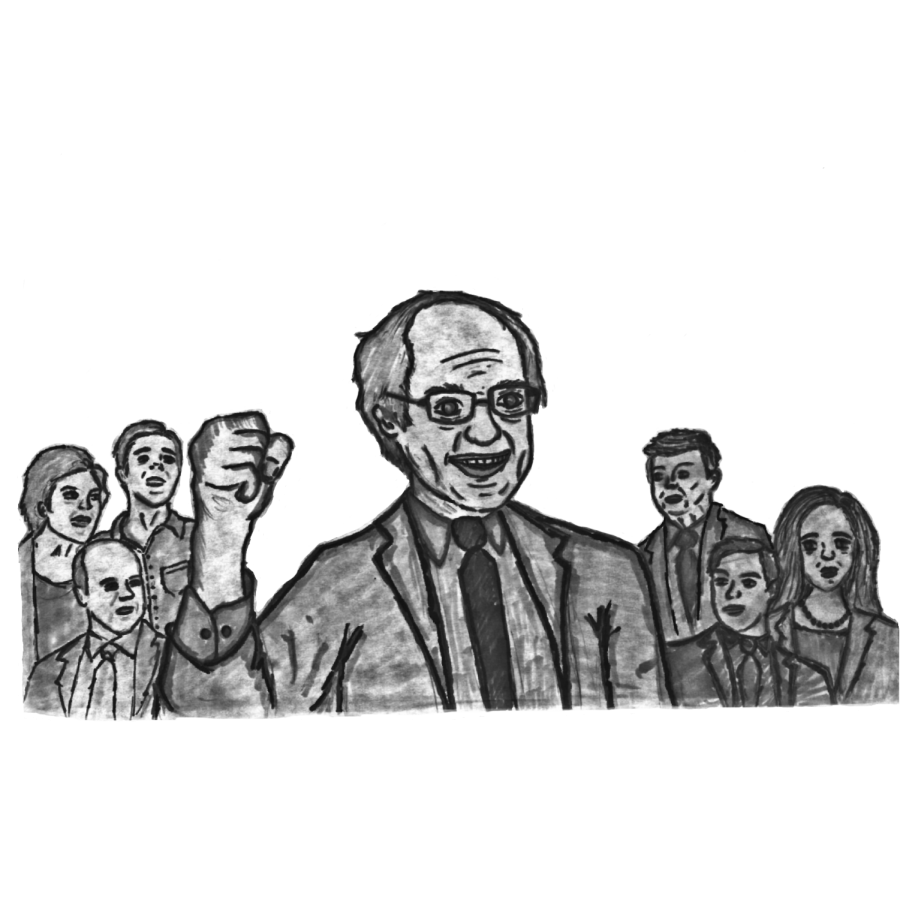Can you feel the Bern, again?
Feb 27, 2019
The world was a different place in 2015. Presidents still had decorum, the #metoo movement was still unborn and the nation’s public moral conversations of today had yet to begin.
In the middle of another normal looking election season, a unique campaign emerged. Candidates spoke about our economy and trade relations, the usual talking points, but headlines announced a new force.
My heart lit up watching an old Brooklynite talk about LGBT issues while promising to address concerns from people of color.
Bernie Sanders announced his campaign, in contrast to grandiose speech parties, by speaking to a small group of press out on the Capitol lawn. His platform was filled with all sorts of socioeconomic ideas that were far from normal for 2015.
Criticisms flooded around him spewing words like socialist and communist.
For me, and many others across the country, Bernie represented the possibility for real, unprecedented change. Even more impressively, his campaign lit a fire inspiring many to join the political sphere for the first time.
However, times have changed and the original ideas that made his platform so innovative now serve as the baseline for most Democrats.
Joining the 2020 presidential race, Sanders is once again bringing some positivity into the campaign.
But it feels a little odd.
His opponents are all now deeply tied to diverse communities, the same ones he reached out to for support in the past. In some ways, his presence is causing a stagnation of progress instead of helping it as he could have before.
None of this is to say that his intentions aren’t noble. It’s just that when I imagine a presidency under Sanders, I can’t help but feel like it’s forcing one of his more diverse opponents to take a seat until the next cycle.
Our country would probably benefit from seeing a fresh cultural face leading us as the past few years have led our cultural conversation to some dark places.
President Donald Trump has driven our national morale to what feels like an all-time boiling point.
Recently, every conversation we have can be politicized in one way or another. What does it mean for Americans to fall out of love with the prodigious type of politics that we’ve come to expect, instead of a rather full, honest discourse?
In 2019 there’s such a fierce divide. What did it feel like to fall out of love with politics after the 2016 election?
It’s a lot for people to center their lives entirely around a singular identity. For me, that was politics and the idea that my efforts could help create positive change for people in their lives outside of their own ideals.
I can tell you that it wasn’t exactly bittersweet, but instead a crumbling break of reality that I couldn’t even process at the time, when Bernie, and then Hillary, (Clinton) lost the election.
Bernie Sanders made waves in 2016 as he represented something beyond himself. His presence in the race signaled a real hunger for change — socially conscious values, holding the federal government accountable, support for LGBT and people of color.
Now in 2020 he has to show America why he would be a better pick over representatives from those communities. Media response has been fierce as national outlets run to point out the very same feelings I currently hold.
What really helped him garner political prowess was the stark contrast between him and his opposing candidates. With Trump on one side and Hillary on the other, Bernie was the only person speaking to the masses. During the last presidential race his ideas were symbols of drastic rebellion against the system.
It was a rebellion, yet still tasteful enough to please the masses on both sides of the political spectrum. Three years ago he burst open the doors on enacting social reform, which saw the injection of his ideas finally included in our political discussions.
Maybe now he just has to be pleased with owning that accomplishment. Sanders will no doubt try to sell his own charisma, but I hope he is content knowing that he’s also holding the door open for his opponents.
It felt like his propositions came from a place that let him understand the intricacies of our political climate. Instead of trying to force both sides of the aisle to be amicable, it felt like he understood how to play the middle man.
Being an outsider worked well for Sanders, and once again he’s playing the same role.
Only this time he is an outsider in both parties.



